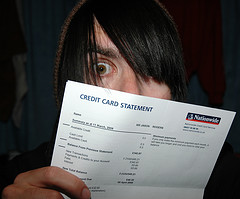If you are only making minimum payments on your credit cards, it may take you years...that's right YEARS to finally pay off all of your cards!
But, by making a few adjustments, you could be be DEBT FREE in a much shorter period of time and SAVE thousands of dollars in interest and fees!
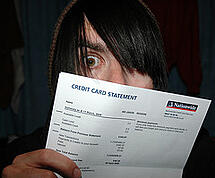
Let's start with a hypothetical example of someone who...
- has accumulated $20,000 of unsecured credit card and medical debt
- has been making minimum payment for a long time
- Is NOT having much of reduction in the balances
- Wants to be DEBT FREE in their lifetime!!!!
Their credit debt looks something like this:
Card: Balance: APR % Min. Payment:
Visa $ 10,000 21% $200
MC $ 5,000 24% $125
Discover $ 2,500 19% $ 50
Medical $ 1,500 18% $ 75
Gas Card $ 1,000 22% $35
This person (sound familiar) has $20,000 of debt with an average APR% of about 21%, and a total minimum monthly payment of $485.
How long do you think it will take for this guy to completely pay off all of this debt?
Before you answer, let's do a little simple math:
Each credit card or creditor calculates the interest payment a little differently, but to keep things simple...
$20,000 x 21% (that's .21 if your doing the math with me) = $ 4,200 of annual interest ! ! !
Divide $ 4,200 by 12 (months in a year) and you get $350.
READY TO BE SHOCKED!
When this guy sends a total of $485 to his creditors, $350 is going to interest and only $135 is going to reduce the principal!
So how long did you think it would take to pay off all of his debt?
- 5 years?
- 10 years?
- 15 years?
If he only pays the minimum payments (and this is exactly what the credit card industry wants), it could take 20 years or more! scary, BUT TRUE!
But, let's make a few adjustments to this picture?
Say this guy could find an extra $75 per month to add to his total payment.
Before you say, "no way", let me throw something out to you:
If you are really serious about becoming DEBT FREE, then you should be willing to make some life style changes.
For example:
If you are one of the millions of people who visit a StarBucks or other Drive-Thru Coffee shop each day, you are most likely spending at least $3.50 per day.
Multiply that by 5 days a work week x 4.2 weeks per month = $ 73.50 per month (can I round up to $75?)
I'm not saying don't drink coffee, but really, $75/month!
- Take that $75 and add it to the $485 you are paying now and you have a total of $560 to put towards your credit cards.
- Take the card with the smallest balance, in this case, the gas card and add $75 to the current minimum payment of $35 and you get $110. Send in $110 each month until this card is paid off.
- Keep making the same minimum payments on the rest of the cards.
- Once the gas card is completely paid off, then take the $110 your were sending in on it and add it to the next card with the smallest balance, in this case the Medical Debt.
- You are paying $75, but with the extra $110, now you are going to send in $185 each month until the Medical Debt is completely paid off.
This sounds kinda good, doesn't it?
Once the Medical Debt is completely paid off, you take the $185 and add it to the next card, in this case, the Discover card. Now you are sending $185 plus the normal $50 for a total of $235 to Discover each month.
Get the idea? Your only sending an extra $75 more than you used to do, but you are paying off your credit debt so much quicker and in the long run, saving thousands of dollars in interest and fees!
You continue paying off the next debt, adding the total your were paying to the minimum payment you have been paying and so on, and so on.
Guess what? If you were this guy, you would be DEBT FREE in about 54 months, instead of many more years!
Just think how that would feel?
Then what are you waiting for?
Request your FREE DEBTACCELERTOR SUMMARY today?



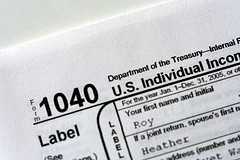

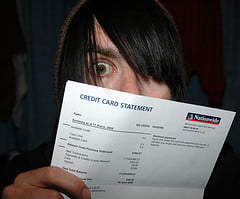 borrower.
borrower.


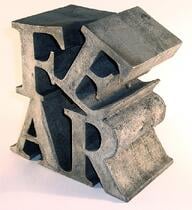

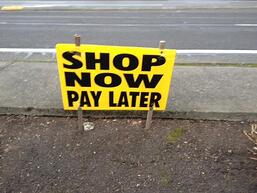 Sadly, when faced with the annoying and often
Sadly, when faced with the annoying and often 
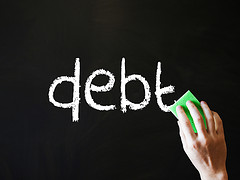 Why is that? Why do so many people, according to the article...1 in 3...have debt issues. Notice, the article didn't say they just had debt, the article stated that 33% of Americans have DEBT COLLECTION PROBLEMS.!
Why is that? Why do so many people, according to the article...1 in 3...have debt issues. Notice, the article didn't say they just had debt, the article stated that 33% of Americans have DEBT COLLECTION PROBLEMS.!